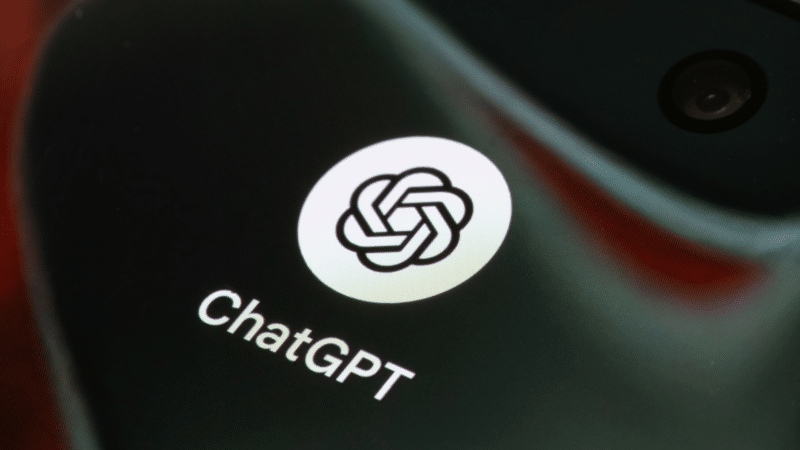Who built ChatGPT?
Similarly, understanding who built the application and why is an important background if you hope to use it in your day-to-day work.
Again, ChatGPT is an OpenAI product. Here’s some background on the company and their stated goals:
OpenAI has a non-profit parent organization (OpenAI Inc.) and a for-profit corporation called OpenAI LP (which has a “capped profit” model with a 100x profit cap, at which point the rest of the money flows up to the non-profit entity).
The biggest investor is Microsoft. OpenAI employees also own equity.
Former Y Combinator President Sam Altman is the CEO of OpenAI and was one of the original founders (along with prominent Silicon Valley personalities such as Elon Musk, Jessica Livingston, Reid Hoffman, Peter Thiel, and others). Many people ask about Musk’s involvement in the company and ChatGPT. He stepped down as a board member in 2018 and wouldn’t have had any meaningful participation in the development of ChatGPT (which obviously didn’t launch until November 2022). He is also not too fond of Altman and has launched a competitive product through his company X (Grok).
Notable points to consider, whether you’re interested in ChatGPT as an SEO tool or as a potential alternative to Google, include:
ChatGPT has launched its own search engine, ChatGPT Search.
Microsoft’s ongoing involvement, with Microsoft Bing being the second-largest search engine, though still far behind Google.
ChatGPT isn’t specifically designed as an SEO or content tool (though many SEO-focused tools now integrate AI into their products).
Get the newsletter search marketers rely on.
Why should SEOs care about ChatGPT?
There are three core reasons for SEOs to be interested in how the ChatGPT product evolves:
ChatGPT search could eventually be a viable alternative to traditional search (though it seems this is, at the very least, far off).
AI optimization, or showing up prominently not just in ChatGPT search but in ChatGPT responses more broadly (and for responses from similar products like Claude, etc.), is a practice that SEOs are well-positioned to become experts at.
ChatGPT can help with lots of SEO tasks!
Dig deeper: How to gain visibility in generative AI answers: GEO for Perplexity and ChatGPT
Here, I’ll focus on use cases to help perform SEO functions. What follows are ChatGPT’s use cases for SEO.
AI content generation
Generating SEO-focused content with AI is probably the most talked about element of AI and SEO.
From creating blog posts and other content whole cloth to generating images and videos, generating meta descriptions, or editing and rewriting content, ChatGPT and OpenAI’s tools can help with a number of specific functions related to content creation generally and SEO-focused content creation specifically.
An important concern here is how Google thinks about AI content in general.
SEOs need to identify the specific instances where ChatGPT can make them more efficient or enhance their content.
At the same time, it’s crucial to understand the potential risks to rankings and organic traffic when using ChatGPT-generated content in different ways (mainly if you’re relying on content created by writers you don’t have a relationship with).
Dig deeper: Does Google’s helpful content update penalize AI content?
Keyword research and organization
Similarly, there are several specific tasks ChatGPT can execute related to keyword research and optimization, such as:
Suggestions for keywords to target or blog topics.
Keyword clustering or categorization.
A key consideration for SEOs is how this relates to your current and optimal processes for these tasks.
ChatGPT isn’t designed to be an “SEO tool,” so it won’t emphasize search volume, competition, relevance, and co-occurrence like more focused keyword research or organization tools.
Code generation and technical SEO
ChatGPT is helping people generate code and build things, and it’s no different for specific technical SEO tasks.
Depending on the prompts, ChatGPT can help with schema markups, robots.txt directives, redirect codes, and building widgets and free tools to promote via link outreach.
As with any type of content creation, you must QA the code that ChatGPT generates.
If the code ChatGPT generates is incorrect, your site’s template, hosting environment, CMS, and more can break.
Dig deeper: Can AI perform technical SEO analysis effectively?
Link building
ChatGPT can generate lists of outreach targets, emails, free tool ideas, and more that may assist with link building work.
Here again (you may be sensing a theme), two things to keep in mind:
Since ChatGPT was not built to be a link building tool, it may not prioritize opportunities or generate ideas that will specifically help with SEO success.
GPT-3 is trained on old data, so the information you’re getting may be wrong or outdated if you don’t build your prompts very specifically to include specific information from the web.
Dig deeper: How to create linkable assets with ChatGPT
How to think about ChatGPT as an SEO
Ultimately, given its early functionality and reception along with OpenAI’s founding team and investors (and level of investment), ChatGPT will likely have longevity as a tool.
There are a ton of use cases for ChatGPT to help with your daily work, including:
I would encourage SEOs to become familiar with ChatGPT (what it’s capable of and what its shortcomings are), get creative with how you can use it to speed up or improve your current processes, and to get used to carefully checking its output.
Contributing authors are invited to create content for Search Engine Land and are chosen for their expertise and contribution to the search community. Our contributors work under the oversight of the editorial staff and contributions are checked for quality and relevance to our readers. The opinions they express are their own.
